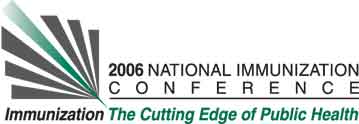Jean J. Schensul1, William B. Disch
1, Elsie Vazquez
1, Kim E. Radda
1, and Rita Jepsen
2. (1) Institute for Community Research, 2 Hartford Square West, Suite 100, Hartford, CT, USA, (2) University of Connecticut Health Center, Farmington, CT, USA
Learning Objectives for this Presentation:
By the end of the presentation participants will be able to...
1. Identify predictors of flu vaccination acceptance in older and minority adults
2. Recognize challenges of survey construction and administration
Background:
Influenza vaccination uptake and vaccination acceptance among older adults is a national priority especially in anticipation of other airborne or vaccine protectable infections. However, influenza vaccination uptake rates remain unacceptably high among African American, Latino and other minority adults, despite widespread national awareness of the issue. This presentation reviews data collected from two pilot studies testing feasibility, acceptability and efficacy of an empowerment intervention to improve flu vaccination uptake among older low income and minority urban adults.
Setting:
Public and private older adult residential buildings
Population:
Low-income, primarily minority older adults
Project Description:
The first pilot study (2004-5) tested a survey including scales on influenza knowledge, attitudes, self-efficacy, social norms, perceived risk and consequences of flu and flu vaccination, and barriers to vaccination as predictors of vaccination acceptance. The second CDC funded study (2005-6) in the field, is implementing a full intervention curriculum in a pilot efficacy trial that includes pre- and post-assessments in one treatment and one control building plus indepth process evaluation.
Results/Lessons Learned:
Results of the feasibility pilot (N=50) showed 90% expressed general willingness to inform other residents about flu vaccination, 92% said they would participate in a flu surveillance project if asked, and 41% indicated their doctor had NOT advised getting a flu shot. Composite scores (Alpha Coefficients) for study scale ranged from .70 - .77. We will report on predictors of vaccination acceptance from the feasibility (N=50) and efficacy pilot baseline data sets (N = approximately 225). Overall results show 45-50% vaccination rates, gaps in knowledge, norms and fears and limited efficacy of in-building flu clinics without other interventions.
See more of Posters
See more of The 40th National Immunization Conference (NIC)

